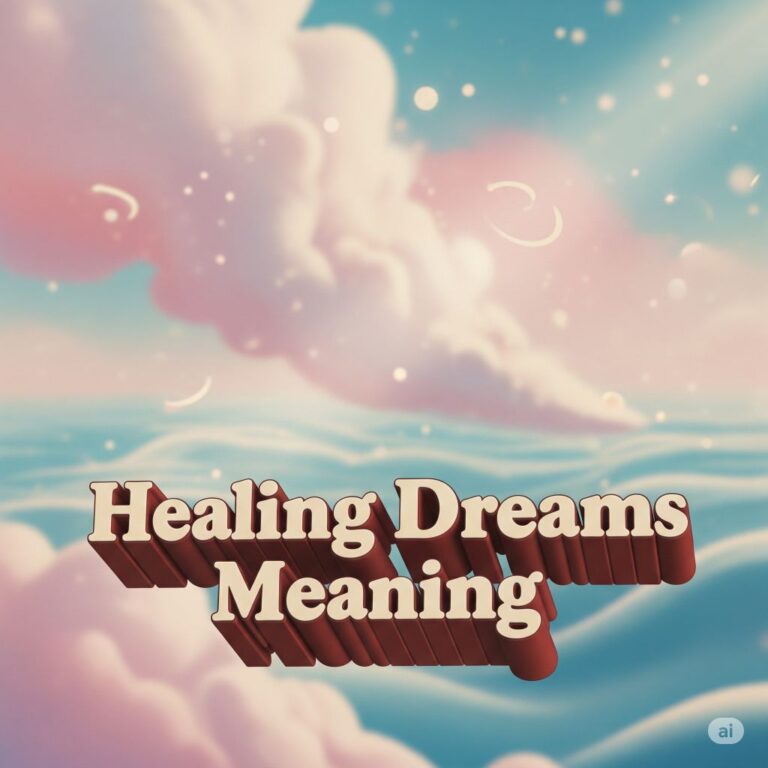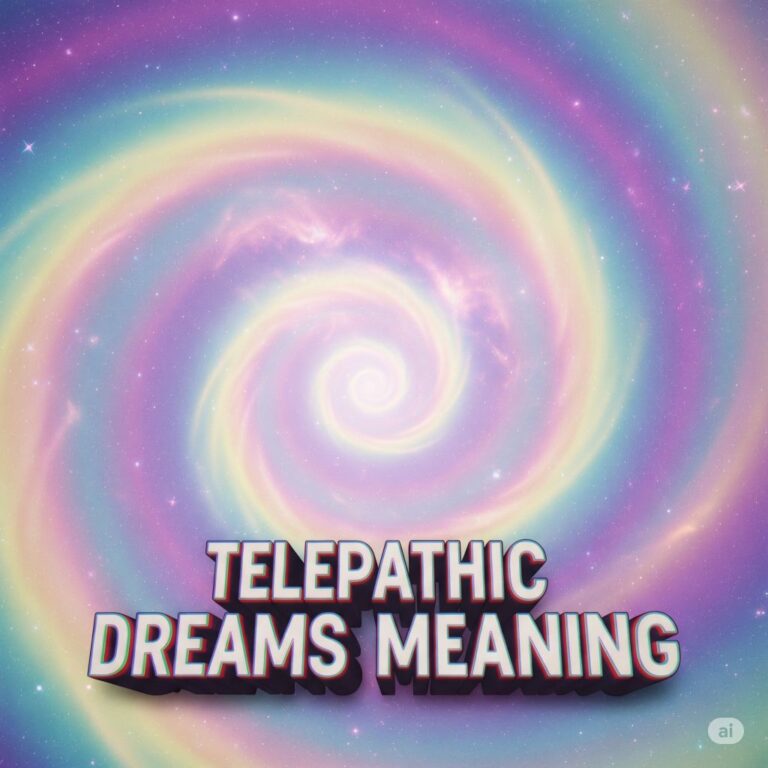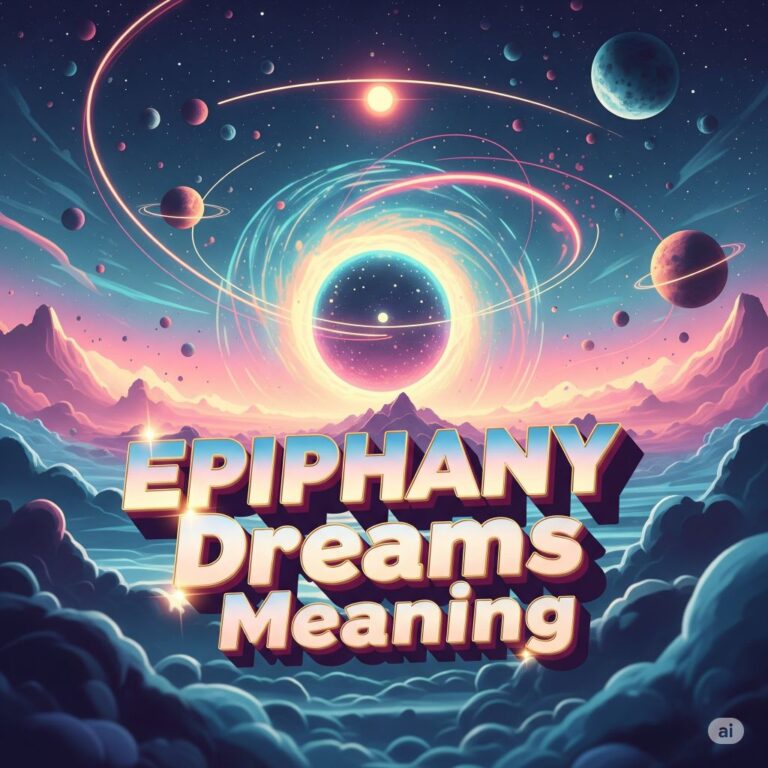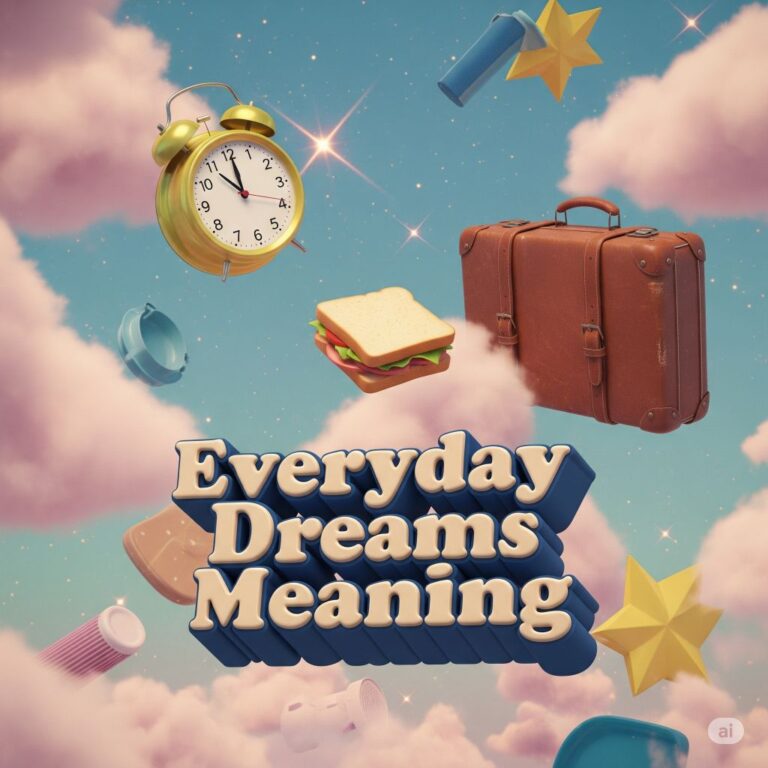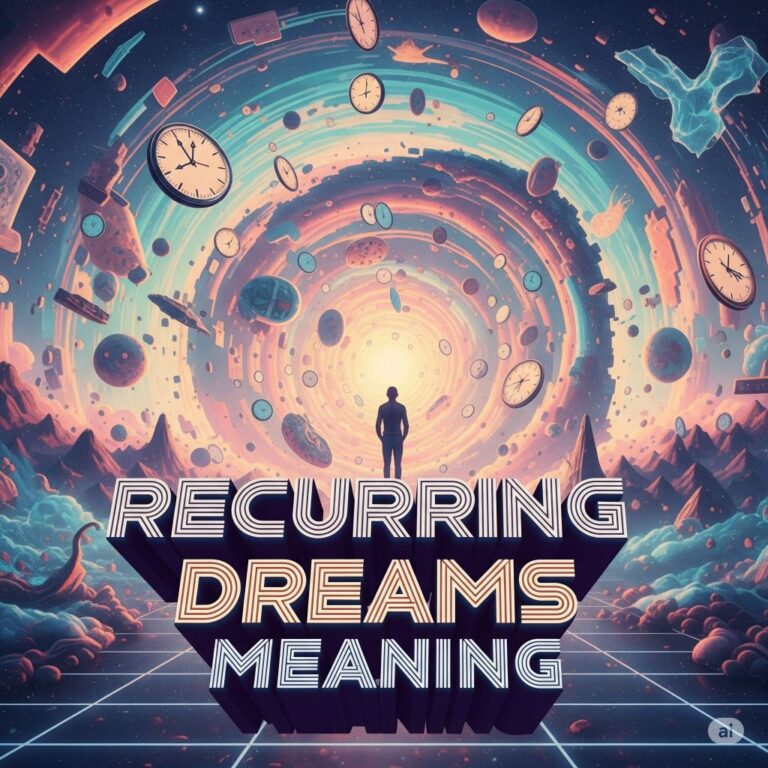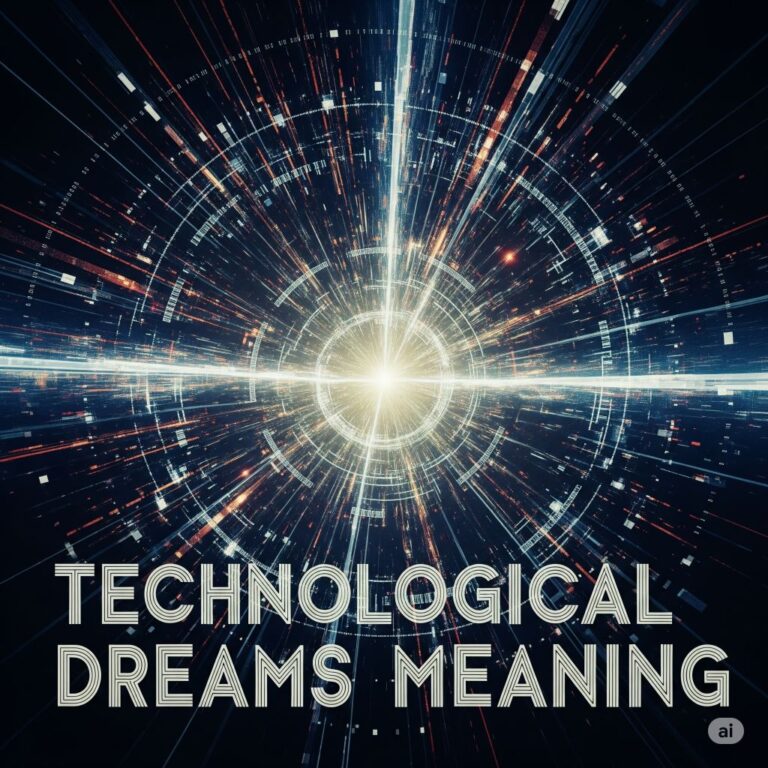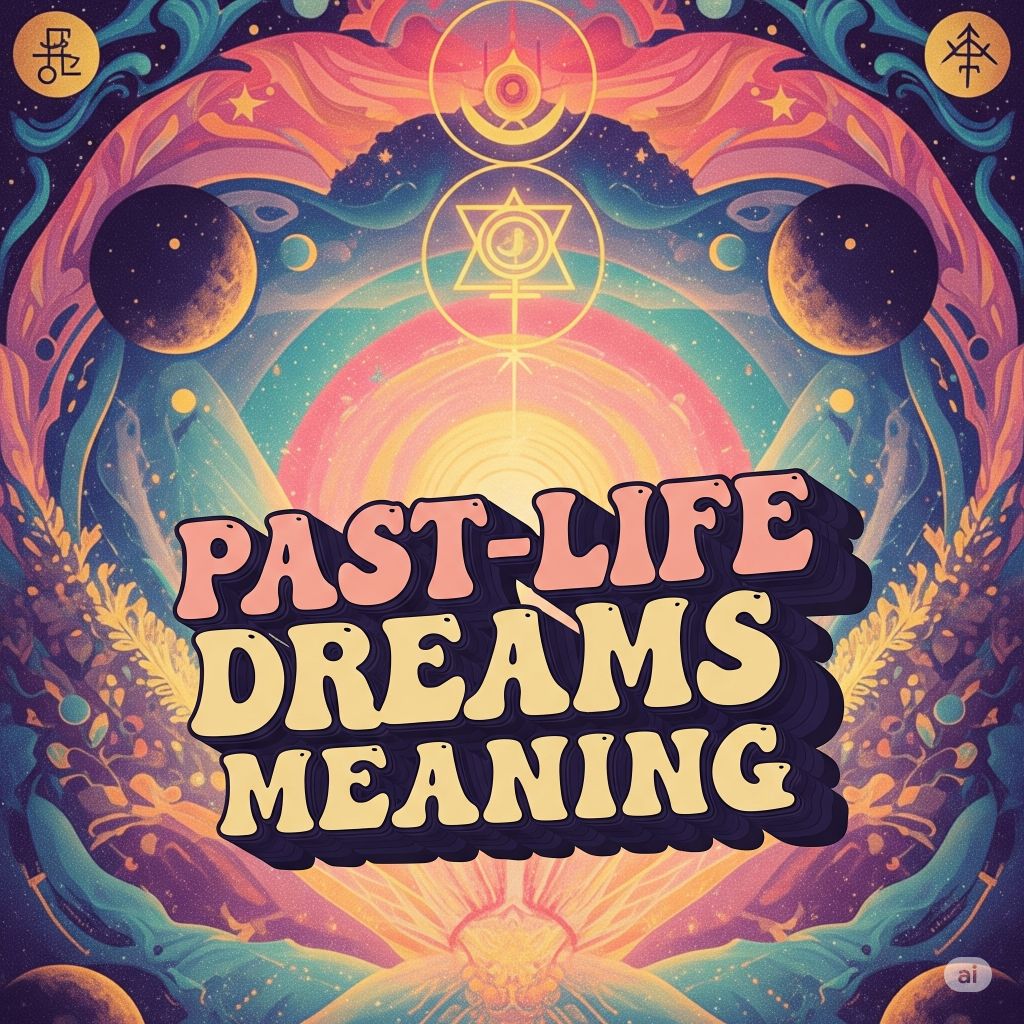
Dreams are often described as windows into the subconscious mind, a realm where memories, emotions, and hidden aspects of the self surface. Among the most intriguing and often profound dream experiences are past life dreams. These are dreams that feel distinctly different from typical dreams, presenting vivid scenarios, unfamiliar settings, historical contexts, or strong emotional connections that the dreamer feels are not derived from their current life experiences. Instead, they carry a powerful sensation of “remembrance” or “knowing,” as if recalling events from a previous existence.
This article explores the phenomenon of past life dreams, examining their meaning, interpretations from various perspectives, their place in spiritual and religious beliefs, and documented reports, all while adhering to established interpretations and reported experiences rather than speculative content.
What Are Past Life Dreams?
Past life dreams are dreams in which the dreamer experiences scenes, sensations, or narratives that they believe are memories or echoes from a previous incarnation. These dreams often possess a unique quality of vividness, emotional intensity, and a sense of “déjà vu” or deep familiarity, despite the content being foreign to the dreamer’s current life.
Key characteristics often reported:
- Historical Contexts: Scenes set in historical periods, foreign lands, or unfamiliar cultures that feel strangely familiar.
- Distinct Personalities: Experiencing oneself as a different person with a unique personality, gender, or role.
- Strong Emotions: Intense emotions (love, fear, grief, anger, joy) connected to the dream’s events or characters.
- Specific Details: Unusually precise details about clothing, architecture, social customs, or technology of a bygone era.
- “Knowing” or “Recognition”: A powerful, intuitive sense that the events are not imagination but actual memories.
- Recurring Themes: The same past life scenario or a related theme may recur across multiple dreams.
- Symbolic Connections: The dream content often holds symbolic relevance to current life challenges or relationships.
Psychological Perspectives
From a conventional psychological viewpoint, past life dreams are typically interpreted as products of the subconscious mind, drawing upon accumulated knowledge, anxieties, desires, and creative impulses from the current life.
- Symbolic Representation:
Psychologists often view dream content as symbolic. A “past life dream” might be the subconscious mind dramatizing current fears, unresolved issues, or personal archetypes. For instance, dreaming of being a warrior in ancient Rome could symbolize a current struggle for power or overcoming adversity, rather than a literal past life memory. Table 1: Psychological Interpretation of Past Life Dream Themes Dream Theme (Past Life) Possible Current Life Interpretation (Symbolic) Soldier in battle Current struggle, inner conflict, feeling under attack Persecuted individual Feeling victimized, oppressed, or unjustly treated in waking life Royalty/Powerful figure Desire for control, leadership, or recognition Peasant/Servant Feelings of powerlessness, servitude, or humility Artist/Musician Unexpressed creativity, desire for self-expression Dying tragically Fear of loss, fear of the unknown, processing grief - Cryptomnesia and False Memory:
- Cryptomnesia: The phenomenon where forgotten information (from books, movies, historical accounts, conversations) is recalled, but the source is not remembered, leading it to be mistakenly perceived as a new or original thought/memory. A dream could inadvertently piece together historical facts or cultural details absorbed unknowingly.
- False Memory Syndrome: While not a “syndrome” in a clinical sense, it refers to the creation of vivid but non-existent memories, often influenced by suggestion or strong emotional states.
- Archetypes and Collective Unconscious (Jungian):
Carl Jung’s concept of the collective unconscious suggests that humanity shares an innate, inherited reservoir of universal experiences, symbols, and patterns (archetypes). A past life dream could be the manifestation of an archetype (e.g., the Hero, the Wise Old Man/Woman, the Martyr) from this collective heritage, rather than a personal memory. - Emotional Processing:
Dreams are crucial for emotional processing. Intense “past life” dreams might be the psyche attempting to integrate difficult emotions, trauma, or complex relationship dynamics that have parallels in perceived historical scenarios.
Spiritual and Metaphysical Perspectives
For many spiritual traditions and individuals, past life dreams are accepted as direct evidence or valid experiences of reincarnation. They are seen as genuine memories or “residues” of former existences that surface when the subconscious mind is most receptive.
- Reincarnation and Karma:
Central to Hinduism, Buddhism, Jainism, and various other spiritual paths, reincarnation posits that the soul or consciousness is reborn into new bodies after death. Past life dreams, in this view, serve as glimpses into the karmic lessons, relationships, or unfinished business from previous lives that impact the current one. Chart 2: Interpretive Frameworks for Past Life Dreams Framework Primary Interpretation Purpose of Dream Psychological Symbolic representation of current life Processing emotions, anxieties, desires Jungian Manifestation of collective unconscious Integration of archetypes Spiritual/Metaphysical Literal memory of past life Karmic understanding, spiritual growth - Soul Memories:
It is believed that the soul retains all experiences across its many incarnations. Dreams are seen as one of the most accessible ways for these “soul memories” to surface when the conscious mind’s filters are lowered. - Spiritual Growth and Lessons:
Past life dreams are often thought to highlight specific lessons or patterns the soul is meant to learn or transcend in the current lifetime. For instance, dreaming repeatedly of being betrayed might indicate a need to work on trust or forgiveness in the present. - Ancestral Memory/Genetic Memory:
While not strictly “past lives” in the reincarnation sense, some theories suggest that deep-seated memories or experiences of ancestors could be passed down genetically or through a collective family unconscious, manifesting as vivid dreams.
Biblical Meanings
Mainstream Abrahamic religions (Judaism, Christianity, Islam) generally do not embrace the concept of reincarnation, and thus, “past life dreams” as literal memories of previous earthly lives are not typically supported within their core theological frameworks.
- Old Testament: While dreams are prominent as divine communication (e.g., Joseph, Daniel), they consistently relate to current or future events within the context of the dreamer’s single life or the lineage of humanity, not past lives.
- New Testament: The concept of one life followed by judgment (Hebrews 9:27) is central. Jesus’s statements and the teachings of the apostles do not support reincarnation.
- Symbolism within Faith: Within these faiths, dreams might hold deep personal or divine messages, but these messages would be interpreted within the framework of the dreamer’s single earthly existence, focusing on repentance, guidance, or prophecy related to their current path.
Therefore, biblical interpretations of dreams would frame “past life-like” content as symbolic representations, divine warnings, or the working of the subconscious mind within the context of a single life, rather than literal prior incarnations.
Real-World Reports and Documented Cases
While empirical scientific proof of past lives remains elusive, there are numerous compelling anecdotal accounts and documented cases of individuals experiencing what they believe to be past life dreams.
- Dr. Ian Stevenson’s Research: A prominent figure in reincarnation research, Dr. Stevenson (a psychiatrist at the University of Virginia) meticulously documented thousands of cases, primarily in children, who reported detailed memories of previous lives. While his research focused more on waking memories and birthmarks, many of these children also reported vivid dreams that seemed to corroborate their past life recollections. He often noted that the vividness and specificity of these accounts went beyond what could be easily explained by common psychological theories.
- Adult Accounts: Countless adults report spontaneous past life dreams that reveal historical details they had no prior conscious knowledge of, only to later verify them through historical research. These dreams often involve:
- Specific Names and Places: Dreaming of being a person with a particular name in a precise historical location.
- Emotional Trauma: Recurring dreams of violent or traumatic deaths (e.g., drowning, being burned, being shot), often accompanied by phobias in waking life corresponding to the dream (e.g., fear of water, fire, loud noises).
- Talents and Skills: Dreams that seem to activate or explain a latent talent or affinity in the current life (e.g., a natural ability with a foreign language, a specific musical instrument, or a historical craft).
- Relationships: Dreaming of intense relationships with people who later appear in their current life, often with a profound sense of recognition or pre-existing connection.
Example Narrative (Anecdotal):
A common type of report involves someone dreaming repeatedly of being a specific gender in a historical period (e.g., a female living in Victorian England) and experiencing strong, unexplainable nostalgia or sadness related to that dream life. Upon later research, they might discover a minor historical detail from the dream that they had no conscious prior knowledge of, reinforcing their belief in its past life origin.
Challenges in Verification:
Despite the compelling nature of these accounts, the primary challenge remains the lack of verifiable, independent evidence that cannot be attributed to cryptomnesia, coincidence, or subconscious fabrication. Researchers face difficulties controlling for all variables, making it hard to prove a direct causal link to a literal past life.
Conclusion
Past life dreams represent a deeply personal and often transformative experience for those who encounter them. Whether interpreted through the lens of psychology as symbolic narratives of the current self or through spiritual traditions as genuine echoes of prior existences, these dreams consistently draw attention to unresolved emotional patterns, latent talents, and profound connections that resonate through time.
While conventional science lacks the tools to definitively prove or disprove their literal nature, the rich detail, emotional intensity, and sense of knowing reported by dreamers suggest that these experiences are far more than random nocturnal fantasies. They invite self-reflection, introspection, and a deeper understanding of the intricate relationship between our conscious awareness, our subconscious mind, and perhaps, the enduring journey of the soul. For many, past life dreams serve as a powerful catalyst for personal growth, healing, and a broader perspective on their life’s purpose and connections.

